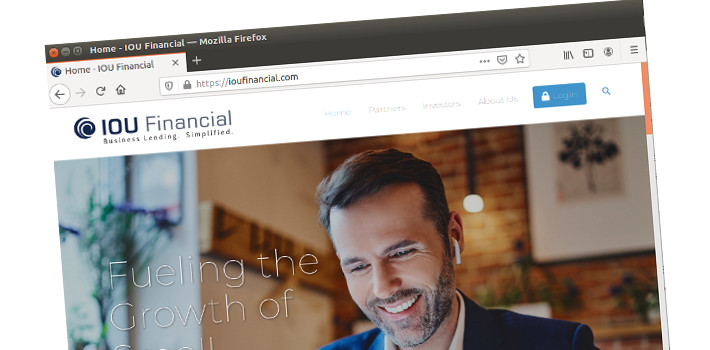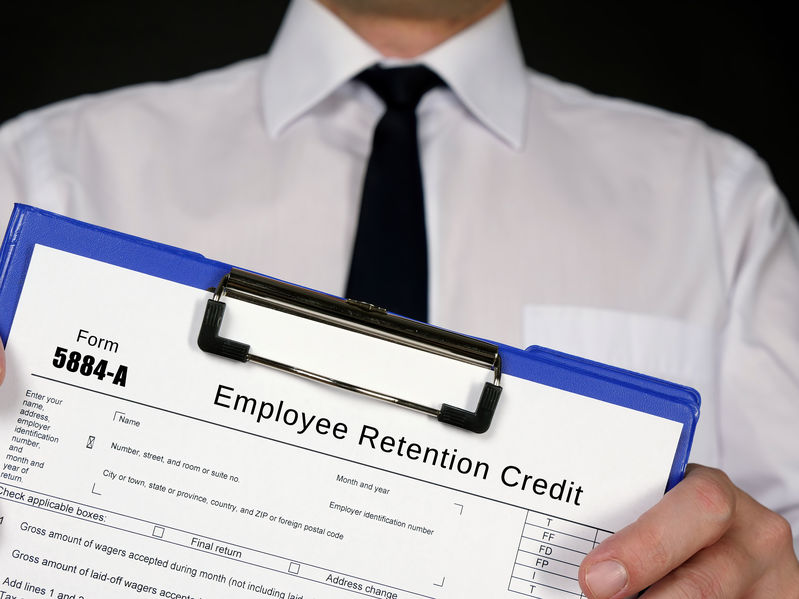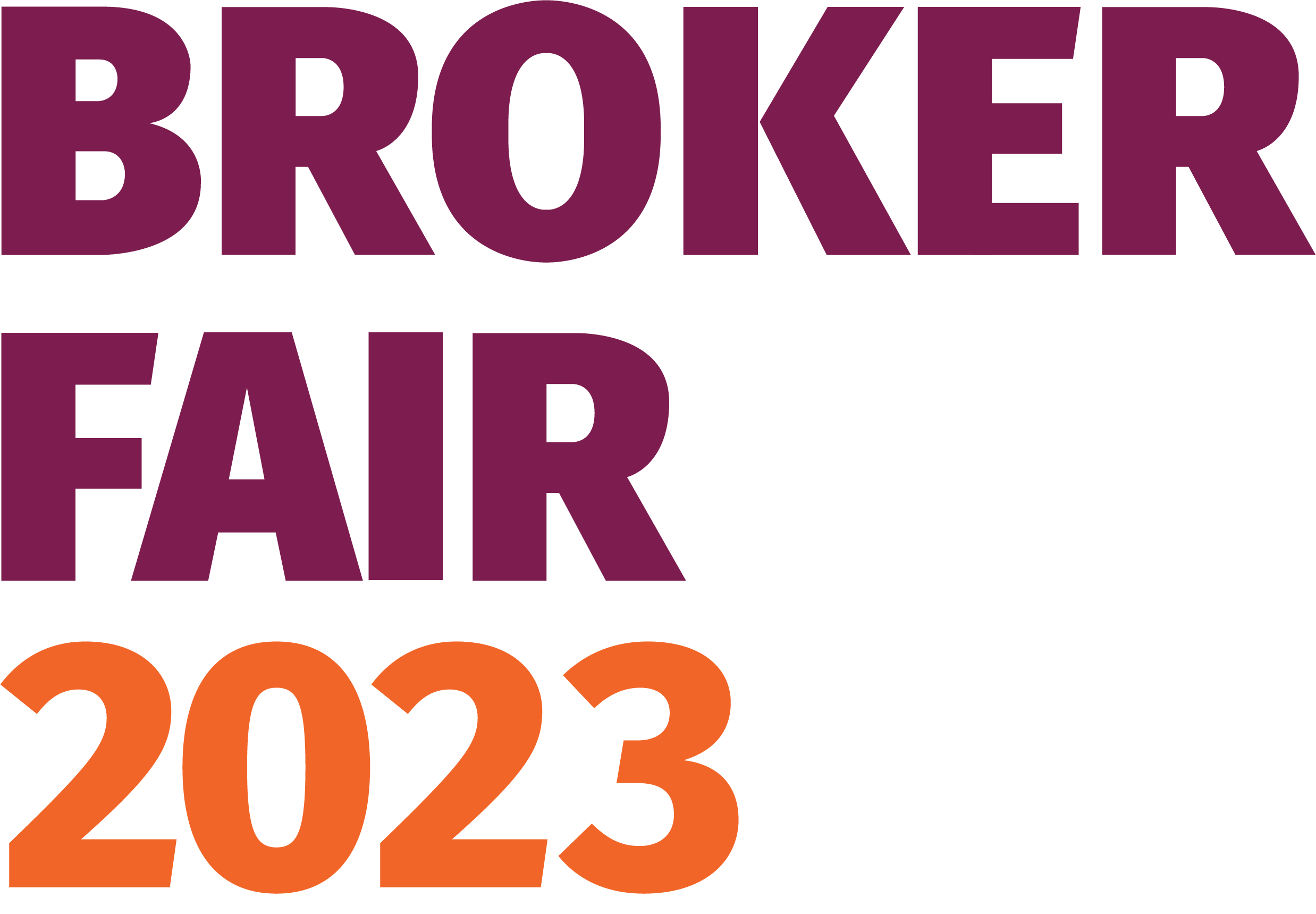Archive for 2023
The Intriguing History of the Automated Clearing House (ACH)
April 26, 2023 The Automated Clearing House (ACH) was born in the 1970s as a response to the inefficiencies of paper-based transactions, and it’s been revolutionizing the world of electronic payments ever since.
The Automated Clearing House (ACH) was born in the 1970s as a response to the inefficiencies of paper-based transactions, and it’s been revolutionizing the world of electronic payments ever since.
In the late 1960s, the United States was facing a mounting problem: the rapid growth in paper checks. Banks were drowning in a sea of paper as they manually processed these transactions. It was a labor-intensive, time-consuming, and error-prone process.
Enter the ACH, an electronic network that emerged as a solution to alleviate the paper burden. In 1972, California’s Bank of America and the Federal Reserve Bank of San Francisco piloted the first ACH program. Their goal was simple: to streamline the check-clearing process and improve efficiency within the financial industry.
In 1974, the National Automated Clearing House Association (NACHA) was formed, providing a much-needed governance structure for the ACH network. Its role was to standardize processes, establish rules and guidelines, and promote the adoption of ACH services across the nation.
As the number of participating financial institutions grew, the ACH network flourished. Electronic transactions gained popularity, and by the end of the decade, paper checks began to lose their dominance.
Throughout the 1980s and 1990s, the ACH network continued to evolve. The advent of the internet and new financial technologies further propelled ACH adoption. Direct deposit, electronic bill payments, and other ACH services became commonplace, reducing the need for paper checks.
In the 2000s, ACH transactions grew exponentially. The Check Clearing for the 21st Century Act (Check 21) in 2003 accelerated the transition to electronic check processing, further cementing the ACH’s role in the financial landscape.
Today, the ACH network processes over 25 billion transactions annually, transferring trillions of dollars. As the world becomes increasingly digital, the ACH network is adapting to meet the needs of businesses and consumers alike.
The introduction of Same Day ACH in 2016 marked a significant step towards real-time payments. This service allows for faster processing of transactions, reducing the waiting time for funds to be available.
As the ACH continues to grow and evolve, it remains a crucial component of the modern financial ecosystem. The once chaotic world of paper-based transactions has transformed into a streamlined, digital landscape, thanks to the innovative spirit that gave birth to the Automated Clearing House. And as technology advances, so too will the ACH, ensuring its place in the annals of financial history.
The History of Cold Calling: A Fascinating Tale of Sales and Serendipity
April 26, 2023 Once upon a time in the early 20th century, in the bustling world of sales, the art of persuasion was taking shape. Salespeople would go door-to-door, using their tenacity, charm, and ability to establish rapport with strangers on the spot to sell products and services. This approach laid the foundation for a sales technique that would eventually become known as cold calling.
Once upon a time in the early 20th century, in the bustling world of sales, the art of persuasion was taking shape. Salespeople would go door-to-door, using their tenacity, charm, and ability to establish rapport with strangers on the spot to sell products and services. This approach laid the foundation for a sales technique that would eventually become known as cold calling.
As the 1920s rolled in, a remarkable invention by Alexander Graham Bell transformed the landscape of communication: the telephone. This groundbreaking device quickly became a common household item, opening up new possibilities for salespeople. Seizing the opportunity to expand their reach, salespeople began calling potential customers without having met them in person. This allowed them to cover more ground and increase the likelihood of closing deals. Thus, the era of cold calling began.
As cold calling gained traction, salespeople started to develop scripts to improve their success rates. These scripts ensured that key points were addressed, and objections were handled effectively. The art of persuasion continued to refine, with salespeople learning to adapt their approach based on the prospect’s reactions. By the 1950s, sales training programs and books emerged, focusing on perfecting the art of cold calling.
Entering the 1980s, the rise of telemarketing took the sales world by storm. Businesses set up call centers to reach larger audiences, and cold calling became a staple in many industries, including insurance, real estate, and financial services. However, this growth also led to increased scrutiny and regulation. In the United States, the Federal Trade Commission (FTC) introduced the Telemarketing Sales Rule in 1995, followed by the establishment of the National Do Not Call Registry in 2003. These measures aimed to protect consumers from unwanted calls and provided guidelines for legitimate businesses.
The dawn of the digital age brought about even more transformations to the sales landscape. Social media, email marketing, and targeted advertising gave businesses alternative ways to reach potential customers. While cold calling faced challenges adapting to these changes, it remained an essential part of the sales process for many organizations. In fact, the rise of Customer Relationship Management (CRM) software made cold calling more efficient and data-driven, increasing its effectiveness in the digital age.
And so, the fascinating tale of cold calling continues to unfold. From its humble beginnings as a door-to-door sales strategy to its evolution into a sophisticated marketing tool, cold calling has played an integral role in the business world. As businesses adapt to the ever-changing landscape, cold calling will undoubtedly continue to play a significant role in sales and marketing strategies for years to come. The end, or rather, to be continued…
Are You Prepared For a Recession?
April 26, 2023 “Different industries thrive through different times and circumstances where others may not weather them as well,” said Kevin Duffy, SVP of Sales & Business Development at Channel Partners Capital.
“Different industries thrive through different times and circumstances where others may not weather them as well,” said Kevin Duffy, SVP of Sales & Business Development at Channel Partners Capital.
The new interest rate environment and slowing economy could be viewed as a specific circumstance and some experts say we’re on pace to experience a recession. But that might not be all bad, according to some industry veterans. Duffy’s colleague at Channel, Chris Cainion, VP of Sales and Business Development, told deBanked that if things slow up a bit, it could be a opportunity to “work on efficiences within your business.” For those in the funding industry specfically, the Channel colleagues said that it’s a time to leverage your strengths, monitor your portfolio, communicate with your customers, be opportunistic, and manage your liquidity.
“Cash is king as the credit crunch is increasing,” said Eleni Delimpaltadaki Janis, Managing Partner & Chief Investment Officer at Equivico. “Focus on looking at your expenses very carefully, looking at where can we create efficiencies in your balance sheet and reserving cash for the future.”
Recessions tend to separate the really good companies from poor ones, said the folks at Channel, who emphasized that they are among the ones prepared for change or a slowdown.
“It’s important for us to be able to first hone in on a type of industries that are good for this type of climate,” said Duffy. “And then the ones that aren’t, we got to be a little bit more careful. It also gives us a chance to work on other things that make us flow, our app-to-funding or funding-to-conversions and things of that nature that helps us be more competitive and more competent as we progress and starting to pick up business again.”
For Janis, if an eventual recession becomes a crisis, she said to never let a crisis go to waste. “In other words, crisis comes with opportunity in the industry, whether you are a FinTech high growth startup or small business, the reality is that a crisis will end up eliminating some of your competitors, and will bring a spotlight on weaknesses that your company or others may have, and an opportunity for those who are solving real problems and have quality products to stand up and gain market share,” Janis said.
BROKER FAIR 2023 HAS SOLD OUT
April 26, 2023Tickets to Broker Fair 2023 sold out early this morning. Those already registered will have access to an incredible lineup of networking opportunities, sales education, and content, that will position their shops for success in 2023 and beyond.
Broker Fair 2023 is being held at the Hilton Midtown on May 8th. Some tickets to the pre-show party (sponsored by Bitty Advance) taking place on the evening of May 7th still remain available. If you have any questions about Broker Fair, please email events@debanked.com or call 917-722-0808.
This year’s Broker Fair stands to rank among the most critical in the industry’s history. We look forward to seeing you there!
IOU Financial Reveals 2022 Financials, Is Adapting to Current Macroeconomic Conditions
April 26, 2023 IOU Financial originated $82.7M in funding in Q4 2022, according to the company’s latest financial report. That put them at $275.5M for the year total, a new all-time record for the company. IOU was profitable for the year but by a razor thin margin, eking out a net income of just $38,826.
IOU Financial originated $82.7M in funding in Q4 2022, according to the company’s latest financial report. That put them at $275.5M for the year total, a new all-time record for the company. IOU was profitable for the year but by a razor thin margin, eking out a net income of just $38,826.
In an official announcement, IOU disclosed that “During the fourth quarter of 2022 macro-economic factors including inflation and rising interest rates impacted the operating environments of many small businesses and negatively impacted IOU’s collections efforts and servicing revenues. This has led to a write down of specific servicing assets and reduced revenue accrual rates, resulting in a net loss of $(2.7) million on an IFRS basis and $(0.9) million on an adjusted earnings basis for the quarter ended December 31, 2022.”
IOU has already taken decisive action to adapt, the company stated, which has already led to a positive impact on collections but also resulted in sigifnicantly reduced originations in the first quarter of 2023.
“IOU Financial has weathered many storms and always emerged stronger than before,” said Robert Gloer, President and CEO of IOU. “We’ve pivoted to adjust to current macro-economic conditions and remain committed to investing in products and technology designed around the needs of small business owners and our broker network.”
Small Business Financing Industry Representatives Testified in New York Senate Hearing on Licensing
April 26, 2023Several representatives from across the small business finance industry testified in a New York State Senate hearing on Tuesday. Up for debate was Senate Bill S1450, which would require a license to engage in commercial financing. As part of that, Banking Committee Chairman Senator James Sanders Jr. fielded testimony and asked questions about bad actors, usury caps, non-compliance penalties, and more. Those called upon at the hearing included:
- Natalie Pappas, Deputy General Counsel, Rapid Finance, on behalf of the SBFA
- Amy Carpenter Holmes, Deputy Counsel, Kapitus
- Chris Grimm, Head of State Government Relations, ILPA
- Katherine C. Fisher, Esq., Partner at Hudson Cook, LLP, on behalf of the RBFC
- Phil Goldfeder, CEO, American Fintech Council
- Chuck Bell, Programs Director of Advocacy, Consumer Reports
Almost all of the organizations were in favor of some form of licensing system in New York except for the Innovative Lending Platform Association (ILPA). The ILPA, more famously known for its previous SMART Box initiative, explained that high compliance costs, inflation, and rising interest rates were putting significant pressure on its member’s businesses.
The video below, which curates just the relevant parts of the day, consists of two separate panels on the same subject. Be sure to watch them both.
FOR ISOs ONLY: HOW TO Make Money Financing ERC Refund Claims in 5 MINUTES OR LESS!
April 24, 2023 You just received a call from one of your favorite merchants saying they had “good news” and “bad news.” When you asked what the “good news” was, they said they had just filed for their ERC refund claim and were getting back $550,000. When you asked what the “bad news” was, they said they wouldn’t be getting the check from the IRS for 6 to 12 months, and needed $120,000 to cover their payroll in 5 days. WHAT WOULD YOU DO?
You just received a call from one of your favorite merchants saying they had “good news” and “bad news.” When you asked what the “good news” was, they said they had just filed for their ERC refund claim and were getting back $550,000. When you asked what the “bad news” was, they said they wouldn’t be getting the check from the IRS for 6 to 12 months, and needed $120,000 to cover their payroll in 5 days. WHAT WOULD YOU DO?
If all you simply said was “no problem- send me a few banks and we’ll take a look at getting you a position,” that would be WRONG! Why? Because you’d be LEAVING $$MONEY ON THE TABLE! Here’s why:
After you have helped Mr. Merchant solve his payroll problem by getting him a position, he’ll keep asking around until he finds “someone else” who can help solve his “other” problem which is HOW TO “monetize” his ERC refund claim and convert it to CASH!
Let’s take a quick look and see how much money you’d be “leaving on the table”- at minimum!
But before we do, let’s look at what you SHOULD HAVE said to Mr. Merchant. Something along the lines of, “thanks for reaching out because we ACTUALLY have a “two-part SOLUTION” for you. The first thing we’re going to do is look at a position to help cover your payroll.
Then, we’re going to bring in our ERC Funding Specialist to identify options for converting your ERC refund claim to CASH, instead of you having to wait 6 to 12 months for the check from the IRS. We only charge a nominal 2% PS fee which we don’t collect until AFTER you’ve been funded. Fair enough?
Plus, we’re ALSO going to arrange an early pay discount on your position in case you elect to use some of the proceeds from the ERC to pay it off early. The savings alone will help reduce your financing costs.
Now let’s take a look and see how much money you’re leaving on the table. First of all, assuming you make 10 points on the position, on $120,000 you’d make $12,000.
 Now let’s look at ERC financing. Your PS Fee of 2% on $550,000 would equal $11,000, almost as much as you’d make on the position, and BEFORE adding any referral commission on the ERC side!
Now let’s look at ERC financing. Your PS Fee of 2% on $550,000 would equal $11,000, almost as much as you’d make on the position, and BEFORE adding any referral commission on the ERC side!
In other words, if you simply took “LESS THAN 5 MINUTES” to tell Mr. Merchant you have a 2-Part Solution versus one, you could potentially DOUBLE your money on the deal, right? RIGHT!
But here’s the question: how do you know what ERC funder is the “best fit” for Mr. Merchant? And what questions do you need to ask to make that determination? (Topic of one of my future articles)
The bottom line is, just like with MCAs where one size “doesn’t fit all” – which is why you typically work with more than one funder – ERC funding works the same. Why not apply the same rule?
But here’s the real dilemma: you have a stack of deals on your desk right now and simply don’t have time to identify ERC funders, and even if you did, you don’t have time to become an “instant expert” and know what questions to ask! So now, WHAT DO YOU DO?
One option is to work with a “trusted” ERC Funding Specialist. These are professionals who not only have the ERC funding relationships but know how to pre-qualify Mr. Merchant to determine which ERC funder is the best fit. In addition, they work with all parties “in the weeds” through underwriting, due diligence, final approval, and funding. In a nutshell, while obviously, they can’t guarantee ERC funding no more than you can guarantee MCA approval, the odds of getting the deal across the finish line are typically greater, particularly when there are issues with approval.
And all YOU have to do is two things; (1) TAKE 5 MINUTES OR LESS to tell Mr. Merchant about your two-part solution and can GET PAID when they get funded and (2) ask EVERY OTHER lead, prospect, and client the SAME QUESTION- “By the way, have you already applied for your ERC refund?” and if so, ask “would you like to get your refund now versus 6 to 12 months later?”
And if they haven’t applied yet or have questions about the ERC, tell them you can arrange a 15-minute call to determine their eligibility.
BOTTOM LINE- If you don’t “ask for the order you’ll never get it,” and it only takes “5 MINUTES OR LESS to do so.”
LAST CALL for Broker Fair Tickets!
April 24, 2023For inquiries or questions, email events@debanked.com
Last call to purchase tickets for Broker Fair 2023! Taking place at the New York Hilton Midtown on May 8th, this is the biggest annual event of its kind in New York City. (REGISTER HERE).
 Sponsors hail from across the small business and commercial finance industries and include the following categories:
Sponsors hail from across the small business and commercial finance industries and include the following categories:
- brokers
- working capital lenders
- revenue based financing providers
- equipment financing providers
- real estate lenders
- factors
- technology
- accounting
- collections & recovery
- consultants
- payments
- and more…































